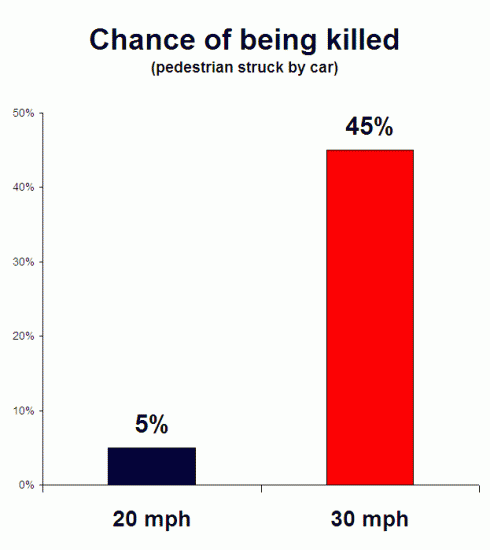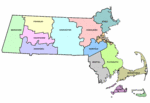 A recent article by law professor Nora Freeman Engstrom in the Georgetown Journal of Legal Ethics explains why personal injury “settlement mills” exist and why, if you have a serious personal injury case, you should make sure that your lawyer is not running a settlement mill (hat tip Point of Law and Drug and Device Law for the original post).
A recent article by law professor Nora Freeman Engstrom in the Georgetown Journal of Legal Ethics explains why personal injury “settlement mills” exist and why, if you have a serious personal injury case, you should make sure that your lawyer is not running a settlement mill (hat tip Point of Law and Drug and Device Law for the original post).
A “settlement mill” is a law firm that handles a high volume of cases, usually specializing exclusively in a certain niche like car accident cases. These law firms, relying mainly on paralegals and administrative assistants, settle an astounding number of cases. In short, they focus on quantity and not quality. They aren’t interested in trying cases because, with the volume of cases that they have, there’s just no time for jury trials.
Why do these settlement mills exist? Prof. Engstrom theorizes that it’s because the insurance companies actually like settlement mills, despite having to fork over money to them in settlements. Professor Engstrom writes that insurance companies and settlement mills “share two sets of overlapping interests: speed and certainty.” Both insurers and settlement mill lawyers want to close out cases quickly – the insurers to take the case off their books and the lawyers so that they get paid.
The desire for certainty that insurers and settlement mills share comes in the form of certainty about damages. An insurance company doesn’t want a case to get to jury trial where a jury can award virtually any amount in damages for pain-and-suffering; it wants the certainty of a pre-trial settlement that caps its liability. Likewise, the lawyers at settlement mills want the certainty of a settlement rather than rolling the dice in a trial they’ll spend hundreds of hours preparing for but might ultimately lose.
As a result of their overlapping interests, settlement mills and insurance companies work out a tacit bargain: the insurance companies pay out small settlements of say $2,500-$5,000 to the settlement mills even in questionable cases. What they get in exchange is the certainty that the serious case, the one that might be worth millions in front of a jury, will almost assuredly never get to trial.
How can you tell if your lawyer is running a car accident settlement mill? Engstrom’s article identifies a number of characteristics of settlement mills, but they’re often hard for an outsider, such as a client, to assess. One red flag that she does mention is a so-called tiered contingency agreement. Under a tiered contingency agreement, the fee that you pay your lawyer goes up if your lawyer has to take the case to trial. If your lawyer offers you a tiered contingency agreement, run, don’t walk, away.
In addition to Engstrom’s warning about tiered contingency fee agreements, I’ve come up with a few more tips about how to spot a settlement mill:
- The law firm is very neat and organized. This one may sound a little funny. Don’t you want a lawyer who’s organized? Well, you want a lawyer who’s on the ball, but that doesn’t necessarily go hand in hand with having an office that’s immaculate at all times. But settlement mills are. They have to be ultra-efficient to handle the volume of cases that they do. That means they have to have an incredibly organized office. From the outside, it looks like they’re running a tight ship but all it really means is that they’re interested in turning over your case and moving on to the next one.
- They use a lot of specialized software. Companies come to me all the time trying to sell me legal software. I never buy any of it because I have no interest in buying and learning a piece of software that will save me a few seconds a day. Plus, most of what I do is too diverse for specialized software to be of much use to me. But in law offices that focus on a high volume of the same kind of cases, proprietary software is a necessary time-saver. So, for example, most title attorneys who do a great deal of residential closings have software programs that do a lot of the work for them. So too a lot of personal bankruptcy lawyers. The same holds true for the auto accident settlement mill lawyer.
- If you get to talk to a lawyer, the lawyer always calls you back instead of immediately taking your call. At a settlement mill, a paralegal or administrative assistant is doing most of the work on your case. And the settlement lawyer has way too many cases to have time to personally take your phone call. So it will be virtually impossible to get your lawyer on the phone. But for me, the dead giveaway is when you finally get to the end of your rope and go ballistic on the lawyer’s secretary, forcing her to talk to you on the telephone. You won’t be patched through by the secretary directly to the lawyer; the lawyer has so many clients that she knows nothing about you or your case and has to refresh her memory with the case file before calling you back to speak to you.
Continue reading →
 This is fact that could be played up a bit more by the public safety community. I’m aware of only one locale in the US where this fact is effectively publicized: New York City. I’m not sure if they’re still up, but the Big Apple had a number of billboards showing a skull superimposed over a child’s face and saying, “At 20 mph, it is likely he’ll survive an accident; at 30 mph, he will most likely die. That’s why the City speed limit is 20 mph.”
This is fact that could be played up a bit more by the public safety community. I’m aware of only one locale in the US where this fact is effectively publicized: New York City. I’m not sure if they’re still up, but the Big Apple had a number of billboards showing a skull superimposed over a child’s face and saying, “At 20 mph, it is likely he’ll survive an accident; at 30 mph, he will most likely die. That’s why the City speed limit is 20 mph.”

